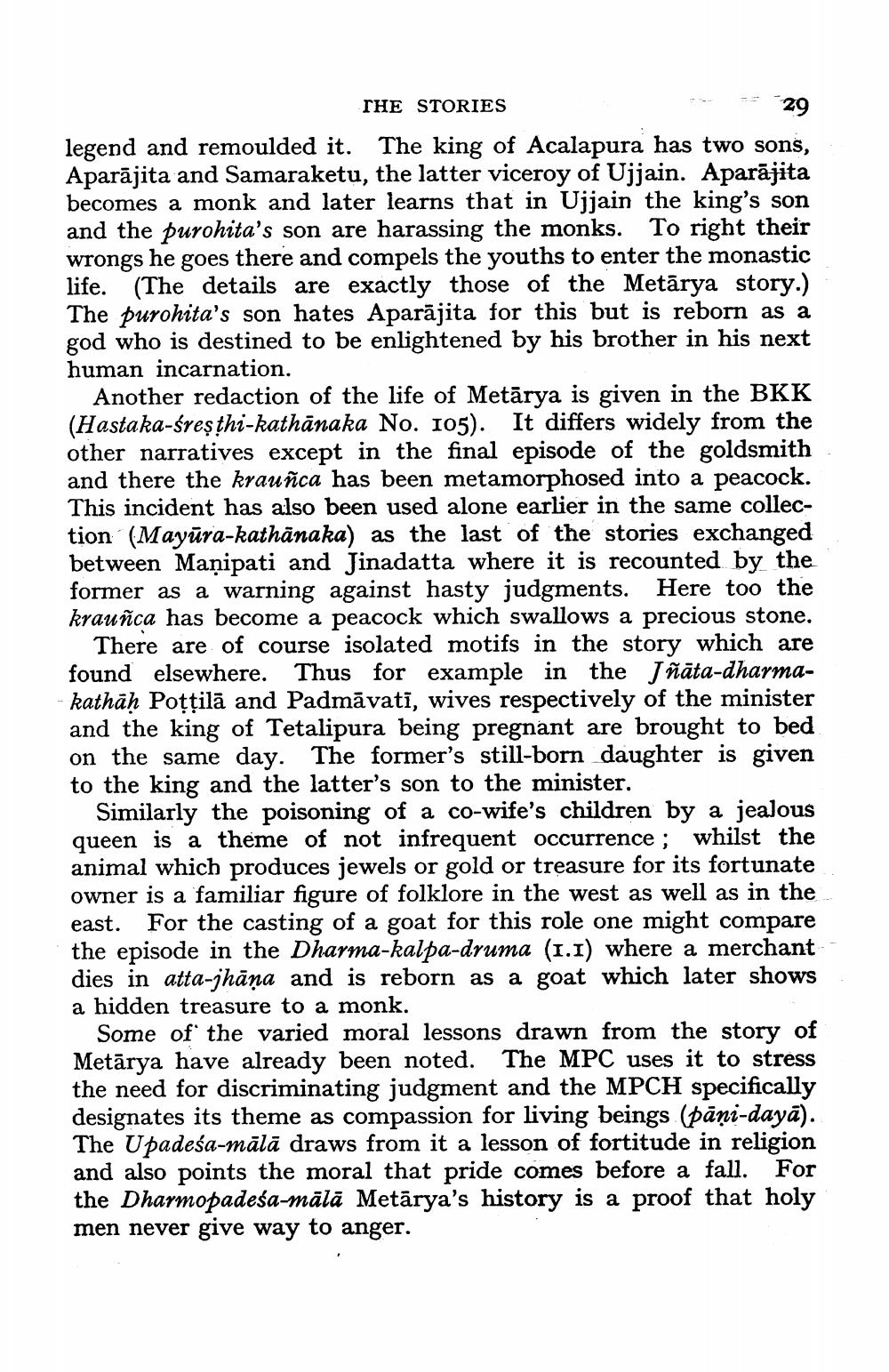________________
THE STORIES
29
legend and remoulded it. The king of Acalapura has two sons, Aparājita and Samaraketu, the latter viceroy of Ujjain. Aparājita becomes a monk and later learns that in Ujjain the king's son and the purohita's son are harassing the monks. To right their wrongs he goes there and compels the youths to enter the monastic life. (The details are exactly those of the Metārya story.) The purohita's son hates Aparājita for this but is reborn as a god who is destined to be enlightened by his brother in his next human incarnation
Another redaction of the life of Metārya is given in the BKK (Hastaka-śreşthi-kathānaka No. 105). It differs widely from the other narratives except in the final episode of the goldsmith and there the krauñca has been metamorphosed into a peacock. This incident has also been used alone earlier in the same collection (Mayūra-kathānaka) as the last of the stories exchanged between Manipati and Jinadatta where it is recounted by the former as a warning against hasty judgments. Here too the krauñca has become a peacock which swallows a precious stone.
There are of course isolated motifs in the story which are found elsewhere. Thus for example in the Jñāta-dharma- kathāḥ Poțțilā and Padmāvatī, wives respectively of the minister and the king of Tetalipura being pregnant are brought to bed on the same day. The former's still-born daughter is given to the king and the latter's son to the minister.
Similarly the poisoning of a co-wife's children by a jealous queen is a theme of not infrequent occurrence; whilst the animal which produces jewels or gold or treasure for its fortunate owner is a familiar figure of folklore in the west as well as in the east. For the casting of a goat for this role one might compare the episode in the Dharma-kalpa-druma (1.1) where a merchant dies in atta-jhāna and is reborn as a goat which later shows a hidden treasure to a monk.
Some of the varied moral lessons drawn from the story of Metārya have already been noted. The MPC uses it to stress the need for discriminating judgment and the MPCH specifically designates its theme as compassion for living beings (pāni-dayā). The Upadeśa-mālā draws from it a lesson of fortitude in religion and also points the moral that pride comes before a fall. For the Dharmopadeśa-mālā Metārya's history is a proof that holy men never give way to anger.




